 Composting worms make food scraps break down quickly, but some foods can hurt them. Vermicomposting with worms is increasingly popular with people who want to reduce trash, produce free fertilizer, and save resources. Therefore, vermicomposting fans have a vested interest in keeping their Red Worms or European Night Crawlers healthy. Worms can break down a wide variety of organic materials, with a few exceptions. Uncle Jim’s Worm Farm explains which foods can hurt composting worms.
Composting worms make food scraps break down quickly, but some foods can hurt them. Vermicomposting with worms is increasingly popular with people who want to reduce trash, produce free fertilizer, and save resources. Therefore, vermicomposting fans have a vested interest in keeping their Red Worms or European Night Crawlers healthy. Worms can break down a wide variety of organic materials, with a few exceptions. Uncle Jim’s Worm Farm explains which foods can hurt composting worms.
In a Tight Space
In the wild, worms will wiggle to a suitable food source. They have an entire smorgasbord outdoors.
A composting bin is a tight space. We set up this habitat for them. The worm bin has the walls and sides, the drainage holes, the lid, and the bedding. Whatever food scraps we put in there become part of their little environment. They are at our mercy, and they are almost like pets. Thus, responsible worm owners will be picky about what goes into the bin.
No Fats or Oils
Humans need fats and oils to survive. Nearly everyone gets fats from vegetable oil, sauces, butter or margarine. Many of us consume animal products, which are often rich.
However, in the confines of a worm bin, fats and oils go rancid. On exposure to air, oils oxidize and smell terrible! They may also attract unwanted pests.
Dairy products such as milk, cheese, and yogurt should never go into a worm bin. Even non-fat varieties are bad for composting worms.
Therefore, dispose of meat, bones, gristle, and dairy products in the trash. Rinse oily dressing off left-over salad. Food doused with oily sauces or butter may not be salvageable. Better to throw out greasy left-overs than risk your worm bin’s health.
No Acid
An acidic environment is unhealthy for worms. Anything you add to the bin becomes part of their environment. Thus, avoid adding acidic foods. One or two spoilt tomatoes a week will not cause much damage. But a steady diet of acidic matter, or an entire bag of orange peels, could alter the pH of your worm bin. Worms like a neutral pH of 7. Common acidic foods are the flesh and peels of oranges, lemons, and limes; pineapples; raw onions; and tomatoes.
Limited Processed Foods
Foods that come in a package and have more than one ingredient have been processed. Many households rely on processed foods for convenience and a long shelf life. On the other hand, processed foods often have added sugar, salt, and hydrogenated oils. You can tell by reading the ingredients.
The additives make the food take longer to break down on the shelf. They also make foods more difficult to digest.
Worms will break down the food faster when it’s easy to digest. Limit the number of processed foods you add to the worm bin. Certain fast food restaurants fill their food with oils, sugar, preservatives, and salt to add shelf life, increase efficiency, and keep food looking attractive. Be selective about which restaurants you patronize. And be selective about how much processed food you give your worms!
Eating more whole foods, such as fresh fruits and vegetables, is good for you and your worms.
Spicy Foods
Hot peppers are spicy because they contain capsaicin. Capsaicin causes a sensation of pain in our mouths. Do not add hot peppers to your worm bin. Also, throw out spicy foods. The effects on your worms might not be pretty!
Paper
Shredded corrugated cardboard and black newsprint are approved for vermicomposting. See our article about cardboard and worms. An occasional handful of these items will not harm the worms. They also make great bedding when you start a worm bin.
White office paper is bleached, and this is unhealthy for the worms. Colored inks are also not recommended. Windowed envelopes contain plastic, which will never break down. Coated paper will not work.
Pesticides
A very small amount of grass clippings is OK, but too much will over-heat the bin. The clippings should not come from a lawn treated with pesticides or herbicides.
The Obvious: Non-Foods
We shouldn’t have to say this, but the worms cannot eat non-foods. You might be surprised at the stories we have heard over the years. Soap, plastic toys, teeth, pet droppings (except rabbits), most food packaging, thick white paper napkins and coated paper plates, and general household trash are very bad ideas. Large avocado pits will not break down anytime soon. Use your common sense. Pull out anything that does not belong.
Compliance
Help your household remember what is compostable. Post a sign at the collection site.
At Uncle Jim’s Worm Farm, we want you to succeed in vermicomposting! Check out our blog, live worms, supplies, and composters.
We recommend Red Worms for composting and European Night Crawlers for composting and releasing into the garden.
We also offer finished compost, made by our worms at our farm in rural Pennsylvania.
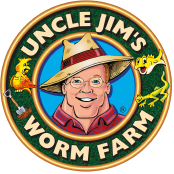

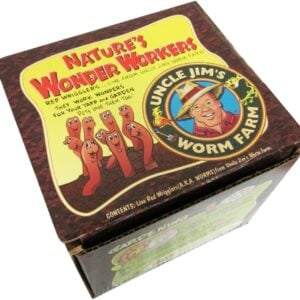
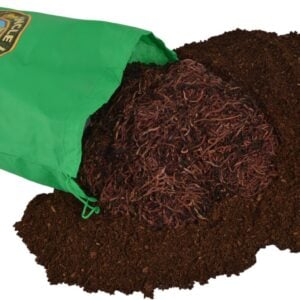
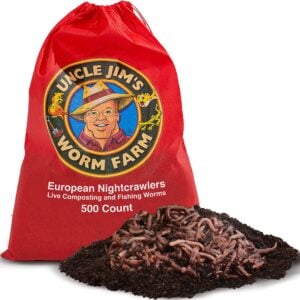
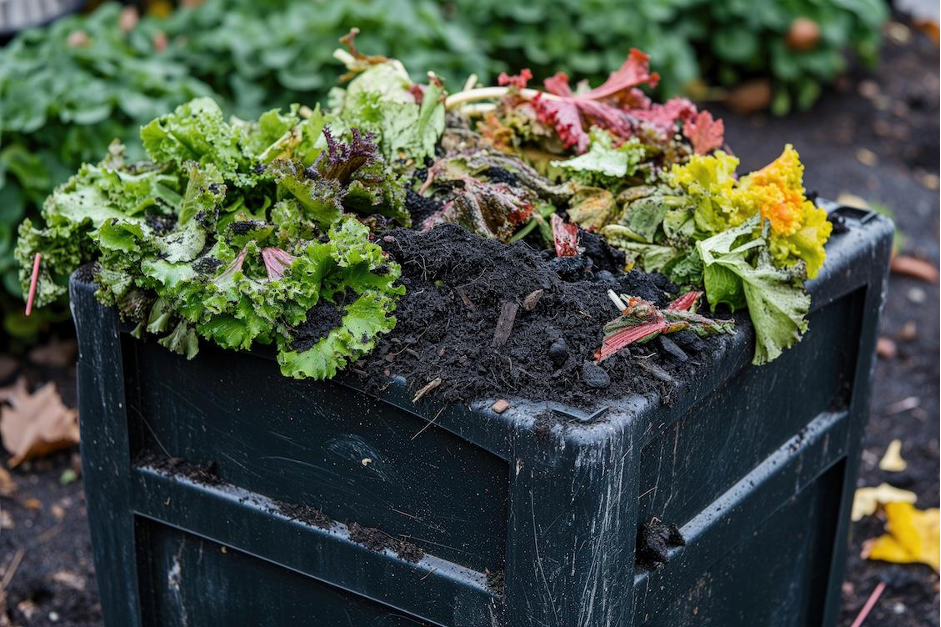

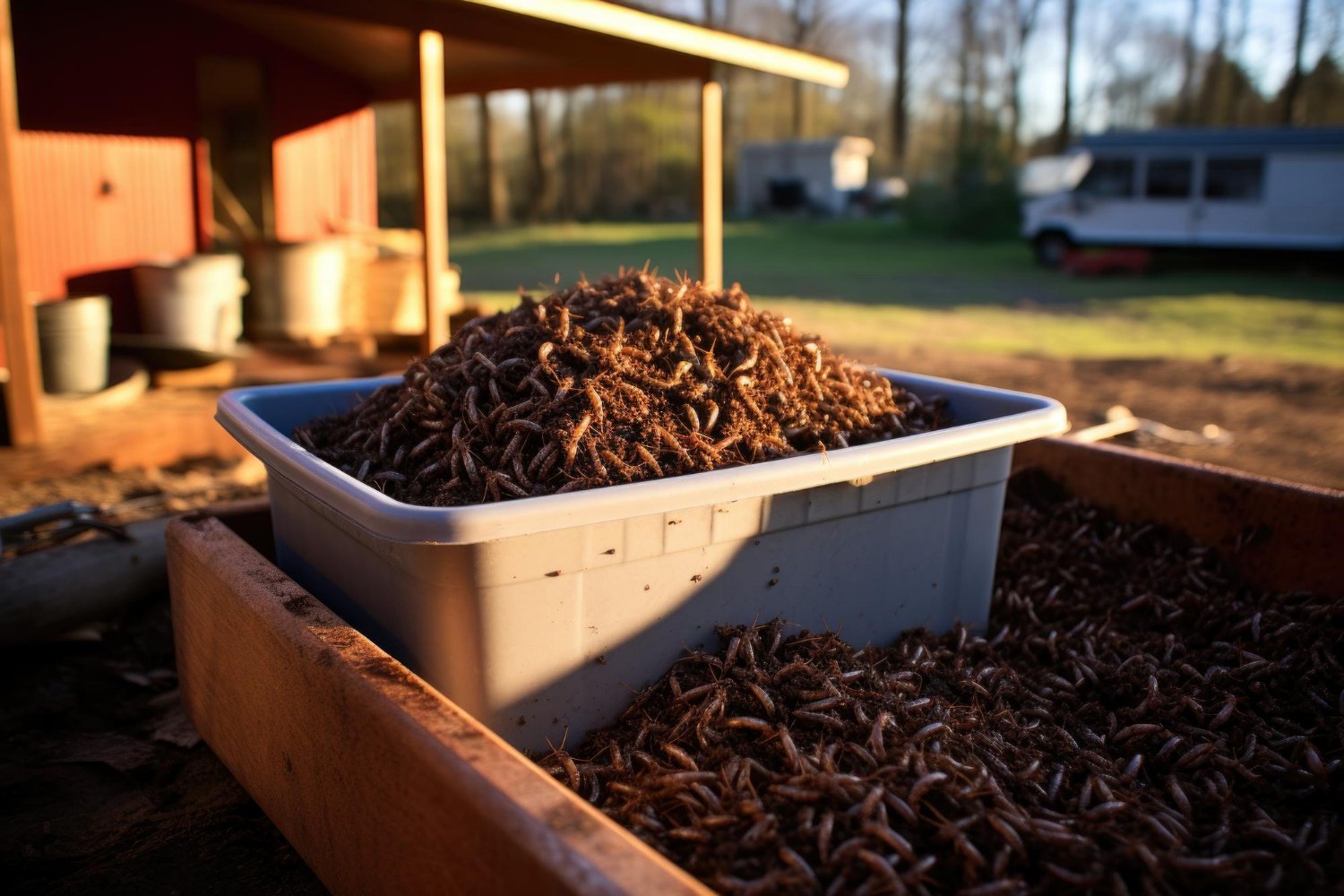
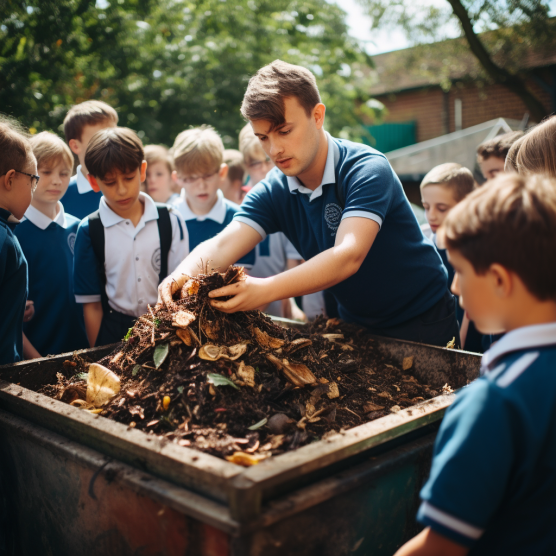
14 thoughts on “Foods That Can Hurt Composting Worms”
What does the bedding look like?
How much is shipping to south Carolina 29340?
Will tea bags with sugar / splenda hurt the worms
What are the minute crawly things in the bottom of my bins, what causes them and what do I do about them?
Thank you
Gidday I have a problem with soldier flies getting into my worm farm. I do not like the smell they produce although they are good composters. I live in sub tropical australia where soldier flies proliferate. A friend told me that gypsum kills the solder fly larvae, what I was wondering whether gypsum kills the red compost worms. Thank you for your time Lyne
I added cinnamon to my ground to brew coffee. Can you please advise if this is still safe to add to my composter. I cannot find any data confirming if cinnamon is safe or dangerous.
Ditto, Denise! Can someone please confirm if it’s okay for our worms to consume cinnamon?
Two questions.. since I started my worm bin I’ve noticed red/brown soil mites . is there anything I can add to get rid of them ?
I tried to use water, neem oil and a bit of soap to help it dissolve ? can that harm the worms ?
Cesar,
I have had my bin for awhile & there is now an entire ecosystem going on in there! It is inside most of the time but did I had the same worry about the things that looked like mites, but I dont think they are hurting the worms. Kind of hard to tell but I still have a lot of worms. I do feed my worms to some fish & red eared slider turtles so I rinse them off several times before I feed them, they are still alive & healthy after feeding on occasional worms for years. The mites do not come on the outside of the box for whatever reason & they are not a problem and seem content to stay in their micro world. My advice would be to let them be, keep an eye on the health of your worms but it shouldnt be anything to worry about. I bet that 1/4 a teaspoon of my compost would contain 100s-1000s of microorganisms and they most likely help the worms in some way.
Why doesn’t anyone answer about putting cinnamon in the bucket to keep the ants out. I saw the ants covered on my worms, they killed them. I want to know if I can mix in cinnamon in with the scraps I put in the bucket ? Those little tiny ants are all over under the soil in my garden, so frustrating.
I am having trouble with fire ants moving into my key hole gardens. I have added red worms to the compose portion of the garden. In the past I have successfully used orange oil and horticultural molasses to get rid of ants in the garden. Will my red worms be harmed from this?
I am having trouble with fire ants moving into my key hole gardens. I have added red worms to the compose portion of the garden. In the past I have successfully used orange oil and horticultural molasses to get rid of ants in the garden. Will my red worms be harmed from this?
Hello Sandy;
Fire Ants and other ants will take up residence in worm bins, gardens and other areas of the yard. We recommend a light sprinkle of Diatomaceous Earth on the top of the soil and you can make a ring around the base of the bin or bed so that the ants must walk through it to get to the nesting area. This will kill them off and/or cause them to move to another area.
Uncle Jim’s Worm Farm
Are cloves ok in a worm farm?